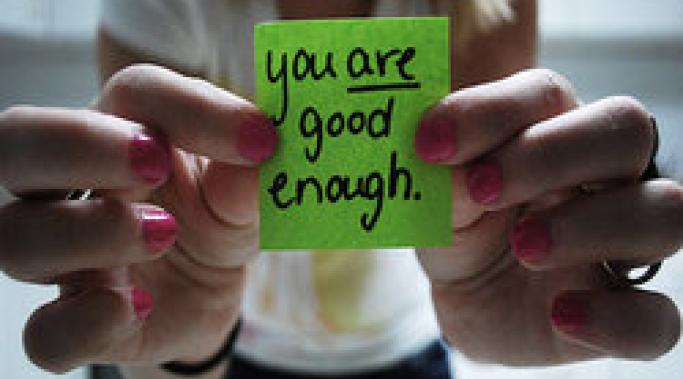Antidepressants can help people going through a variety of mental health challenges and illnesses and you can come off antidepressants safely and without fear. Some people can remain on them for months and sometimes years. In some cases, the antidepressant medication can be temporary. Once feeling well and strong again, it's up to the individual to decide when, and if, they want to stop taking the medication. However, although the individual can be well enough, it can become too daunting to stop the medication just in case he or she slips back into the headspace they were in when starting it (My Depression Feels Unreal). This is certainly the case with me. In this video I express my thoughts and fears about antidepressants and how I want to come off antidepressants safely and without fear, eventually.
Mental Health Support
I used to be a people pleaser but now I've learned to put myself first. When I was younger, I used to be the kind of person that people could take advantage of easily. When you display that as a young person, it's hard to change as an adult -- but it is possible to put yourself first and stop being a people pleaser.
Fewer things in this life are worse than suffering from mental illness for a prolonged period, but you can enjoy a happy life after a mental illness diagnosis. In the blink of an eye, life can change and all of a sudden you’re not the person you once were. It’s been eight months exactly since I recovered from a serious episode of depression and anxiety and gained my life back (Recovering From Mental Illness: A Self-Help Guide). In this blog and video, I want to share how my life has improved and become rich again. (And I don't mean rich in the financial sense). I believe there’s no greater gift than giving back, so I hope my experience inspires you to realize that you can enjoy a happy life even after a mental illness diagnosis.
When mental health issues strike, it's common for some people to notice changes in themselves from who they once were, but you can improve your mental health by contributing. You may have been a social butterfly before, the life of the party, or you may have always gone out of your way to help others. One thing is for sure -- when you fall into a deep depression or find yourself anxious all the time, not only can you change as a person, but it's almost impossible to take the focus off yourself and how bad you feel. What can you do to take some of your control back? What I want to share in this video could potentially be the starting point for pulling yourself out of your anxiety and/or depression. Here I talk about contributing to help improve your mental health.
There is a struggle for many with mental health in their 20s. Some say your 20s are the best years of your life. Being young definitely has its advantages, and a lot of people wish they could stop time and stay young forever. It is great not having to worry about wrinkles, and knowing that your physical body is in its prime condition. But why do so many people in their 20s struggle with mental health issues? When young people are supposed to be fit, driven, and with their whole lives ahead of them, why are so many unhappy and suffering with issues such as depression, anxiety and panic?
Knowing how to help a loved one through depression can be confusing. It’s common to hear people use the word "depression" and casually throw it around in everyday conversation. However, the serious illness that is depression, unfortunately, can strike at any time, and affect a loved one at a moment’s notice. It can be very hard for family and friends to see someone they love suffer. How do you help a loved one going through depression when you don’t understand it, and what approach should you take?
At one time or another, most of us have been through hard times that wear us down immensely, but how do you know if you have depression? People use the word depression often. They believe depressed people are sad for a particular reason. However this is not the case. So, if that isn't depression, then how do you know if you have depression? What is depression?
There are many reasons why people suffer from low self-esteem. From the past programming as children, to the unrealistic feeling that we need to have it all. Why do we put so much pressure on ourselves to be a certain way or achieve certain things? Sometimes it's easy to fall into negative patterns of thinking. Like feeling discouraged about where we are in life, and wishing we were more than we are. Comparing yourself to others will only bring more frustration as we all have our unique talents and skills to focus on.
I remember being a teenager -- calling that phase of life a challenging time is an understatement! Many teenagers need self-esteem help because not only are you going through physical changes that affect your mood and hormones, but you are also trying to find who you really are.
How do you do this when during the teenage years you're so influenced by others? How do you do this when it’s painful to go against your peers, and all you want to do is fit in? If you are unique and don’t conform to the norm, you start to feel like you’re not good enough (The Truth About Self-Esteem). How does one get through this transition period into adulthood? Here's some help for teenage self-esteem.
Once you’ve experienced the horror of anxiety and depression you are thankful every day that you have your life back, and you start to make plans for the future but what you need to know is that mental health wellness is a lifetime commitment. The gratitude one feels after a breakdown is like no other feeling in this world. Naturally, as we regain our health, we crave change and work on improving our own lives. However, we need to make sure we don’t become complacent and fall back into similar traps of negative thought patterns that are dangerous for our mental health. We need to make sure we make a lifetime commitment to mental health wellness.









